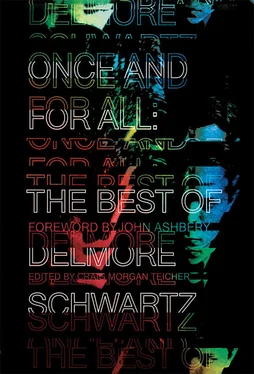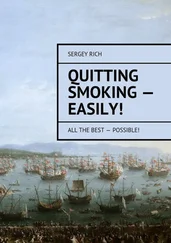My father arrives at my mother’s house. He has come too early and so is suddenly embarrassed. My aunt, my mother’s sister, answers the loud bell with her napkin in her hand, for the family is still at dinner. As my father enters, my grandfather rises from the table and shakes hands with him. My mother has run upstairs to tidy herself. My grandmother asks my father if he has had dinner, and tells him that Rose will be downstairs soon. My grandfather opens the conversation by remarking on the mild June weather. My father sits uncomfortably near the table, holding his hat in his hand. My grandmother tells my aunt to take my father’s hat. My uncle, twelve years old, runs into the house, his hair tousled. He shouts a greeting to my father, who has often given him a nickel, and then runs upstairs. It is evident that the respect in which my father is held in this household is tempered by a good deal of mirth. He is impressive, yet he is very awkward.
II
Finally my mother comes downstairs, all dressed up, and my father being engaged in conversation with my grandfather becomes uneasy, not knowing whether to greet my mother or continue the conversation. He gets up from the chair clumsily and says “hello” gruffly. My grandfather watches, examining their congruence, such as it is, with a critical eye, and meanwhile rubbing his bearded cheek roughly, as he always does when he reflects. He is worried; he is afraid that my father will not make a good husband for his oldest daughter. At this point something happens to the film, just as my father is saying something funny to my mother; I am awakened to myself and my unhappiness just as my interest was rising. The audience begins to clap impatiently. Then the trouble is cared for but the film has been returned to a portion just shown, and once more I see my grandfather rubbing his bearded cheek and pondering my father’s character. It is difficult to get back into the picture once more and forget myself, but as my mother giggles at my father’s words, the darkness drowns me.
My father and mother depart from the house, my father shaking hands with my mother once more, out of some unknown uneasiness. I stir uneasily also, slouched in the hard chair of the theatre. Where is the older uncle, my mother’s older brother? He is studying in his bedroom upstairs, studying for his final examination at the College of the City of New York, having been dead of rapid pneumonia for the last twenty-one years. My mother and father walk down the same quiet streets once more. My mother is holding my father’s arm and telling him of the novel which she has been reading; and my father utters judgments of the characters as the plot is made clear to him. This is a habit which he very much enjoys, for he feels the utmost superiority and confidence when he approves and condemns the behavior of other people. At times he feels moved to utter a brief “Ugh”—whenever the story becomes what he would call sugary. This tribute is paid to his manliness. My mother feels satisfied by the interest which she has awakened; she is showing my father how intelligent she is, and how interesting.
They reach the avenue, and the street-car leisurely arrives. They are going to Coney Island this afternoon, although my mother considers that such pleasures are inferior. She has made up her mind to indulge only in a walk on the boardwalk and a pleasant dinner, avoiding the riotous amusements as being beneath the dignity of so dignified a couple.
My father tells my mother how much money he has made in the past week, exaggerating an amount which need not have been exaggerated. But my father has always felt that actualities somehow fall short. Suddenly I begin to weep. The determined old lady who sits next to me in the theatre is annoyed and looks at me with an angry face, and being intimidated, I stop. I drag out my handkerchief and dry my face, licking the drop which has fallen near my lips. Meanwhile I have missed something, for here are my mother and father alighting at the last stop, Coney Island.
III
They walk toward the boardwalk, and my father commands my mother to inhale the pungent air from the sea. They both breathe in deeply, both of them laughing as they do so. They have in common a great interest in health, although my father is strong and husky, my mother frail. Their minds are full of theories of what is good to eat and not good to eat, and sometimes they engage in heated discussions of the subject, the whole matter ending in my father’s announcement, made with a scornful bluster, that you have to die sooner or later anyway. On the boardwalk’s flagpole, the American flag is pulsing in an intermittent wind from the sea.
My father and mother go to the rail of the boardwalk and look down on the beach where a good many bathers are casually walking about. A few are in the surf. A peanut whistle pierces the air with its pleasant and active whine, and my father goes to buy peanuts. My mother remains at the rail and stares at the ocean. The ocean seems merry to her; it pointedly sparkles and again and again the pony waves are released. She notices the children digging in the wet sand, and the bathing costumes of the girls who are her own age. My father returns with the peanuts. Overhead the sun’s lightning strikes and strikes, but neither of them are at all aware of it. The boardwalk is full of people dressed in their Sunday clothes and idly strolling. The tide does not reach as far as the boardwalk, and the strollers would feel no danger if it did. My mother and father lean on the rail of the boardwalk and absently stare at the ocean. The ocean is becoming rough; the waves come in slowly, tugging strength from far back. The moment before they somersault, the moment when they arch their backs so beautifully, showing green and white veins amid the black, that moment is intolerable. They finally crack, dashing fiercely upon the sand, actually driving, full force downward, against the sand, bouncing upward and forward, and at last petering out into a small stream which races up the beach and then is recalled. My parents gaze absentmindedly at the ocean, scarcely interested in its harshness. The sun overhead does not disturb them. But I stare at the terrible sun which breaks up sight, and the fatal, merciless, passionate ocean, I forget my parents. I stare fascinated and finally, shocked by the indifference of my father and mother, I burst out weeping once more. The old lady next to me pats me on the shoulder and says “There, there, all of this is only a movie, young man, only a movie,” but I look up once more at the terrifying sun and the terrifying ocean, and being unable to control my tears, I get up and go to the men’s room, stumbling over the feet of the other people seated in my row.
IV
When I return, feeling as if I had awakened in the morning sick for lack of sleep, several hours have apparently passed and my parents are riding on the merry-go-round. My father is on a black horse, my mother on a white one, and they seem to be making an eternal circuit for the single purpose of snatching the nickel rings which are attached to the arm of one of the posts. A hand-organ is playing; it is one with the ceaseless circling of the merry-go-round.
For a moment it seems that they will never get off the merry-go-round because it will never stop. I feel like one who looks down on the avenue from the 50th story of a building. But at length they do get off; even the music of the hand-organ has ceased for a moment. My father has acquired ten rings, my mother only two, although it was my mother who really wanted them.
They walk on along the boardwalk as the afternoon descends by imperceptible degrees into the incredible violet of dusk. Everything fades into a relaxed glow, even the ceaseless murmuring from the beach, and the revolutions of the merry-go-round. They look for a place to have dinner. My father suggests the best one on the boardwalk and my mother demurs, in accordance with her principles.
Читать дальше












